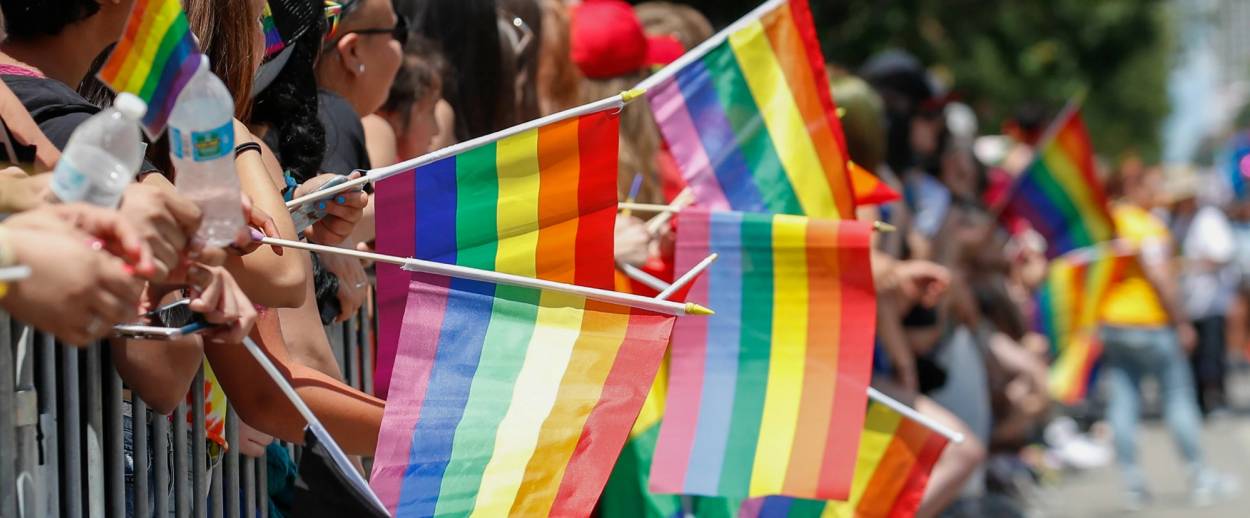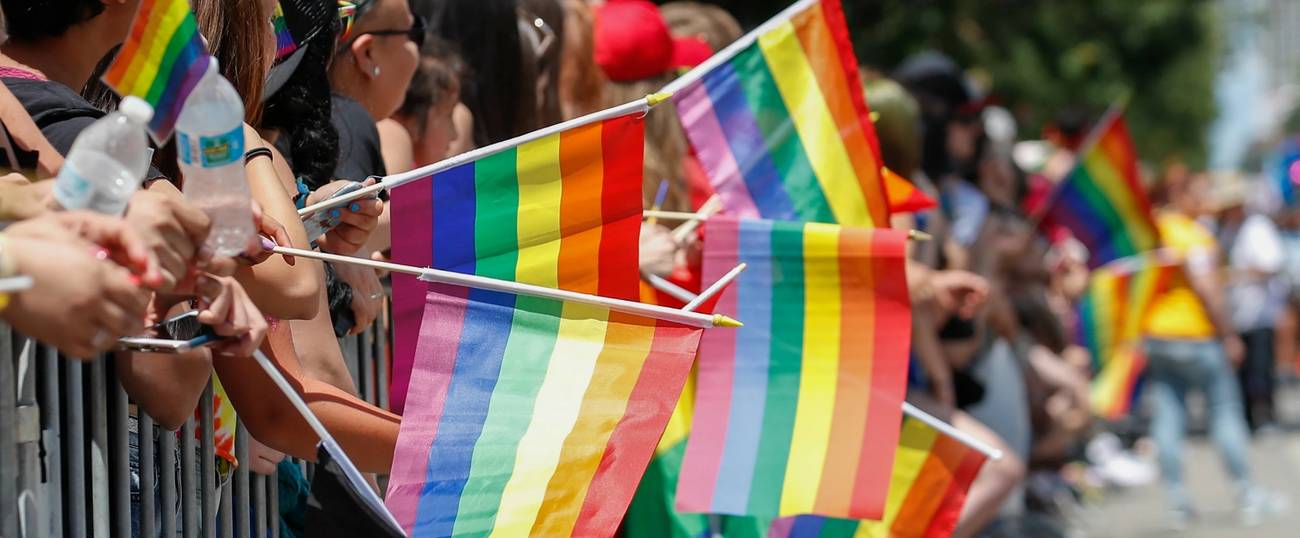Journalist Who Exposed Chicago Dyke March Details Their Anti-Semitic Harassment Over Her Reporting
Award-winning LGBT journalist Gretchen Hammond, who lost her job following pressure from the Dyke March, tells all




Last month, the Chicago Dyke March, a far-left alternative to the city’s main Pride parade, expelled several Jews for hoisting Jewish pride flags featuring the Star of David. The march claimed they were merely being “anti-Zionist,” despite the fact that the Jewish star on the flag far predates the state of Israel. The incident came to the public’s attention through the on-the-ground reporting of Gretchen Hammond, an award-winning transgender reporter for the LGBT-focused newspaper, the Windy City Times. Yet following her explosive scoop, Hammond was quickly removed from reporting duty following outcry from the Dyke March and its sympathizers.
The paper denied the pressure had anything to do with Hammond’s demotion, but over the weekend, the reporter finally opened up about the hailstorm of hate that enveloped her after her story was published. Speaking at a journalism gala in New York on Thursday, Hammond talked about being silenced first as a transgender person as a child, and then as a reporter this past month:
Award-winning LGBT reporter @GretchRHammond talks about being “silenced” after exposing anti-Semitism at the Chicago Dyke March: pic.twitter.com/xwsYgLe0Pz
— (((Yair Rosenberg))) (@Yair_Rosenberg) July 17, 2017
That very evening, the Dyke March tweeted a neo-Nazi slur, defended it, then deleted it. This explicit expression of anti-Semitic bigotry from the march prompted Hammond to open up about similar abuse she’d received from them after publishing her story. Writing on Facebook on Monday about the Dyke March’s Twitter slur, Hammond commented:
Not remotely surprised and thoroughy [sic] disgusted. They attacked me in much the same manner only using words like ” k*ke” and also said they would “make sure your bitch ass never writes in Chicago again.” Selfishly, I could claim to be vindicated by this disgusting tweet but I feel no cause for anything but the deepest shame that I ever was associated by acronym or by requirement to such vile hatred.
She also tweeted this at the Dyke March itself after it belatedly attempted to backpedal on its slur:
You attacked, humiliated and robbed me of a job. No tears. I forgive you. Just hope you learn how destructive and pointless hatred is.
— Gretchen R. Hammond (@GretchRHammond) July 17, 2017
Hammond’s account strongly suggests that the Dyke March’s pressure led to her silencing, something which should trouble all those who care about freedom of the press in this fraught time.
Hammond’s experience also offers further evidence of the anti-Semitism that has clearly infected the Dyke March and its organizers. They expelled Jews waving Jewish symbols, sent anti-Jewish invective to the reporter who wrote about it, and then blasted out a white supremacist slur on social media, while referring to Israel as a “fugly slut” that had no right to exist. Any one of these incidents could perhaps be have been dismissed as misunderstandings, exceptions, or ignorance. Together, however, they constitute a damning pattern of abuse.
Previous: Chicago Dyke March Drops Pretense, Deploys Anti-Semitic Slur Popularized By Neo-Nazis
Four Reasons the Chicago Dyke March was Anti-Semitic
Yair Rosenberg is a senior writer at Tablet. Subscribe to his newsletter, listen to his music, and follow him on Twitter and Facebook.